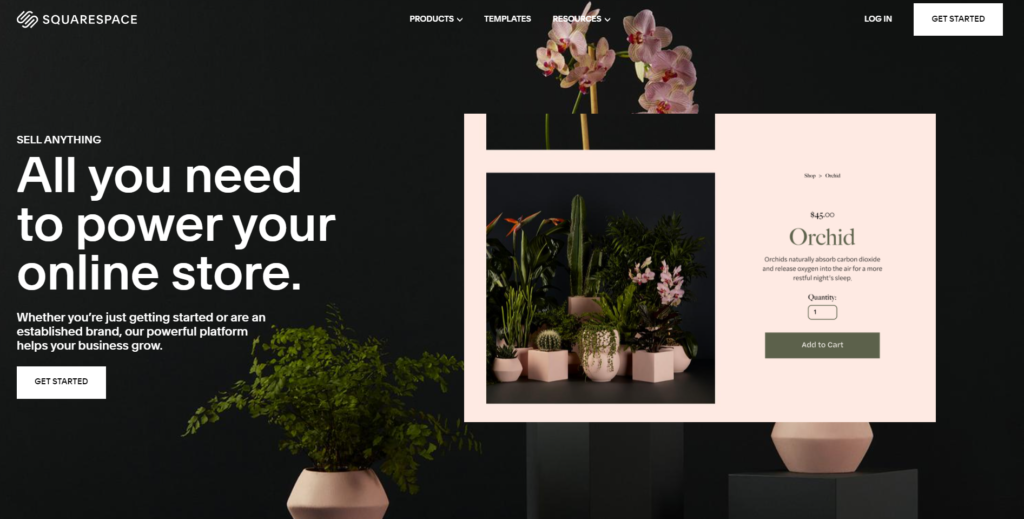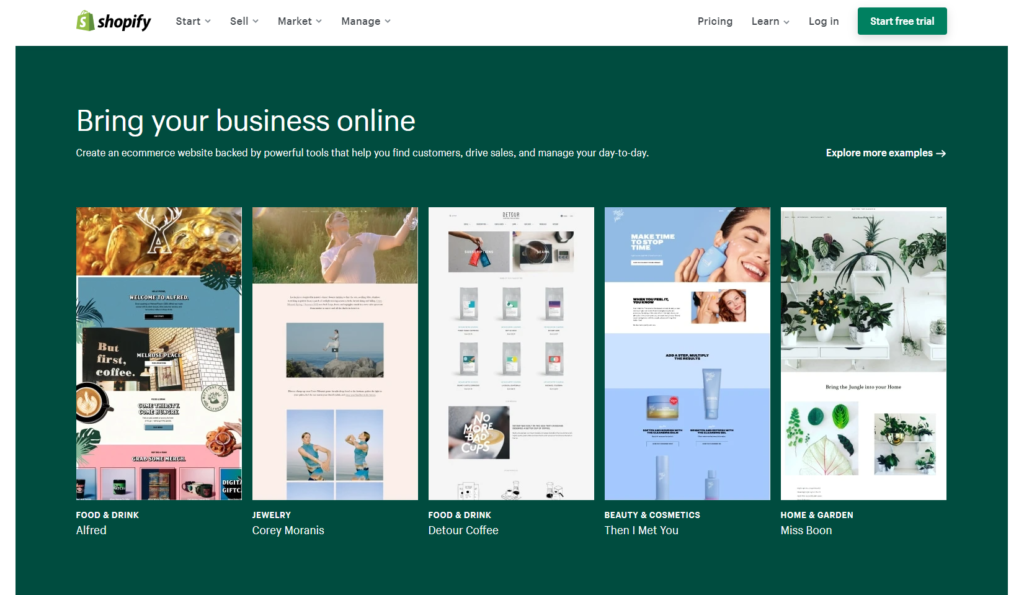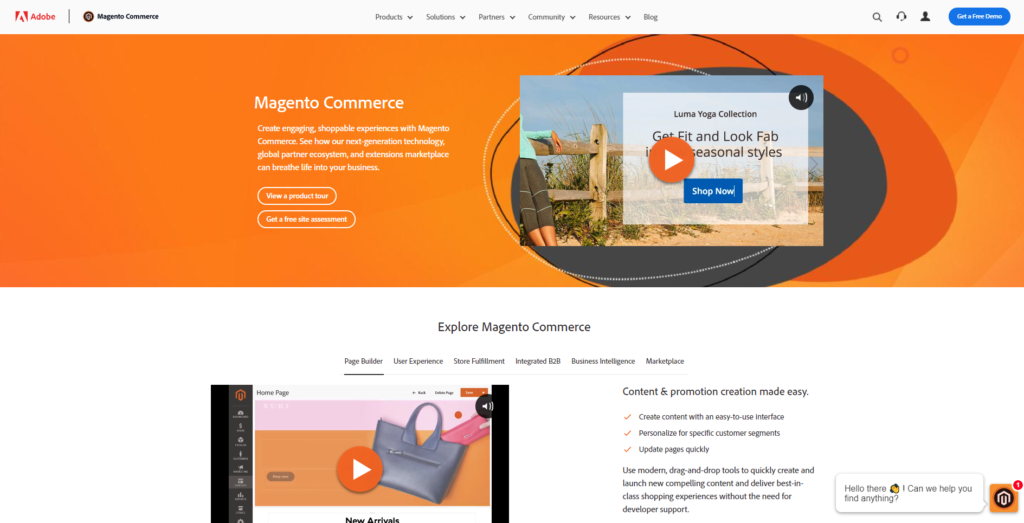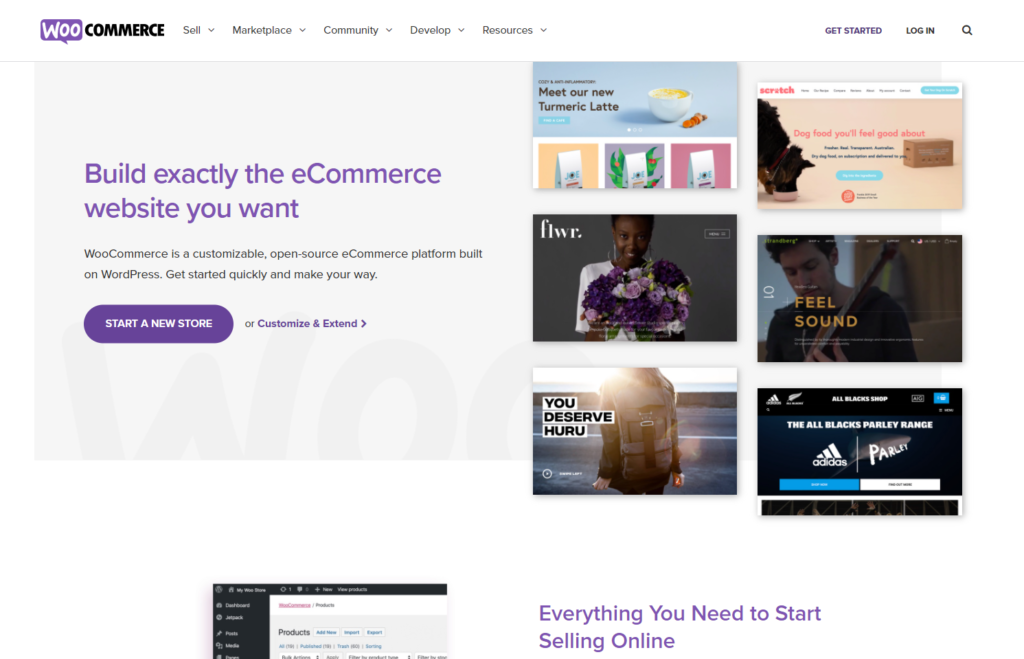Here at ASAP Marketing Solutions, we only use the latest tools and platforms in the digital marketing industry. When it comes to web design and development, our team uses a myriad of different eCommerce platforms to deliver clean, user-friendly experiences. Depending on the type of business you have, the tools we use may differ. At the same time, your budget and personal preferences also affect what tools we use.
For businesses selling products, eCommerce is a great venture to start because it opens up access to your products. Selling online can help you grow your business and reach markets physical stores cannot. The web development team at ASAP Marketing is capable of using any type of eCommerce platform, but we certainly have our preferences. Here are the five best eCommerce platforms you can use for your business:
5. Squarespace

Testing out multiple eCommerce platforms doesn’t hurt, especially when Squarespace provides a free 14-day trial. Wix and Squarespace are similar in that they both are primarily visual builders. This means you can see what the website looks like as you design it rather than seeing code. Designing and editing the Squarespace templates are extremely easy and user-friendly for those who don’t have experience with creating websites.
As for managing your online business, Squarespace does integrate with PayPal, Apple Pay, and Stripe. Square is not supported on the eCommerce platform. Moreover, if you wish to perform any on-site search engine optimization (SEO), then you’ll find Squarespace disappointing. Squarespace has come a long way in improving its SEO capabilities; it still has a lot to go. Many of their templates score low on page speed tests, and the page builder elements add unnecessary code on the backend.
4. Wix

Wix is a great platform to use if you have little to zero knowledge about building websites. Building a site on Wix is made easy with an intuitive user interface and an extensive library of templates. You sort the template library by the type of product you are selling, such as jewelry, clothing, home decor, and electronics. You can quickly find a template within your product type and get to customizing almost instantly.
The basic business plan starts at $23 per month, which is great for those just starting out. You receive a custom domain, secure online purchases, and 24/7 customer support. However, you may need to upgrade your plan as the business grows as the basic plan does have it’s limitations. The eCommerce platform, as a whole, lacks a customer login portal. Additionally, the template you choose will heavily restrict you in what you do with your site, which means it could look similar to other sites that have chosen the same template.
3. Shopify

Shopify is an eCommerce platform dedicated to online stores. Unlike Wix or Squarespace who have capabilities for all types of sites, Shopify is strictly made for businesses selling products. Just like Wix and Squarespace, you can choose from several different templates that are highly customizable. Designing and changing these templates is easy for beginners, but they do limit you as most templates do.
In addition to Shopify’s theme restrictions, there are only ten free options within each category. If you want something outside of those free choices, then you’ll need to pay. One major positive about using Shopify is the integration capabilities it has. There are a lot of plugins you can use to automate your tasks. It is important to note that some of these apps have fees that you will also have to pay. At any point you have an issue with your Shopify website, you may contact their 24/7 customer support line, which can be a lifesaver at times.
2. Magento

Magento is a leader among Commerce platforms because it is specifically designed to support online stores. Magento isn’t like the previously mentioned platforms because it gives you a lot of flexibility when it comes to design and function. Yes, you can pick from themes, but those themes are way more customizable than what Shopify or Wix allow. You will need a web developer to use that wide design versatility of the eCommerce platform, but it is certainly worth the cost.
The features of Magento are outstanding. It is capable of supporting more than one store, multiple locations, multiple languages, and more! Businesses who reach all over the globe for their products can benefit from Magento’s capabilities. More importantly, Magento is mobile-friendly, which is extremely critical when building a website. The biggest drawback of Magento is the price you’ll pay. You can expect to pay tens of thousands of dollars for a basic Magento website, which scares off many small and medium-sized businesses.
1. WooCommerce (WordPress)

Finally, the best of the eCommerce platforms is WooCommerce, WordPress’s eCommerce platform. WordPress dominates the internet as being the most used website platform. One-third of all websites on the internet use WordPress, which means professionals and amateurs alike use it. WordPress can provide you the same type of designs that Magento can come at a lower price. The only downside to this is that the design will need to be handled by someone who knows their way around code.
You can use various plugins for a user-friendly building option, such as Elementor or Divi, but these apps can slow down your site’s page speeds. A web developer can create a custom theme or edit any themes you choose. SEO is another major feature you need to consider for your site, and WordPress delivers. The SEO tools available to you are some of the best compared to other eCommerce platforms.
Which of These eCommerce Platforms Are Right for You?
The list we have compiled above is not comprehensive, so you should look into the pros and cons of using each platform before making a final decision. The team at ASAP Marketing prefers WordPress, but we have worked with each of these eCommerce platforms. We can help you develop a strong eCommerce website to sell your products all over the country or world. Contact our team today at (832) 737-2752 to learn more about these eCommerce platforms or to schedule a free consultation.
